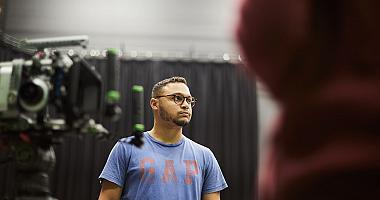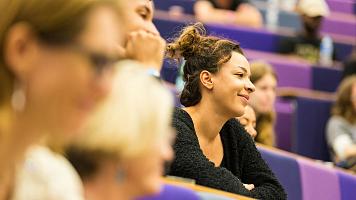Course information
Department
Length
1 year full-time or 2 years part-time
Course overview
A unique programme for dramaturges and playwrights, this programme concentrates on the process of writing for live performance, together with an ongoing evaluation of the work in process.
Why study MA Dramaturgy & Writing for Performance at Goldsmiths
- This Masters will help you establish a distinctive, individual approach as a writer and dramaturge. You will work on projects including site-specific work, writing for a specific audience, verbatim theatre and interdisciplinary collaboration.
- You will develop texts for performance, and refine your intellectual understanding of the diverse forms and contexts in which live performance can be made.
- You will be taught by experienced permanent staff, as well as visiting tutors, including Goldsmiths alumnus Ian Rickson (former Artistic Director of the Royal Court), April De Angelis, Duncan Macmillan, Penny Black, and Hanna Slattne.
- You will have the opportunity to work on an interdisciplinary project with MA Performance Makers and composers from the Department of Music. Your final project texts, performed and directed by industry professionals at the Soho Theatre in London, and attended by key industry representatives.
- Graduates from this programme are highly successful in obtaining commissions, dramaturgy posts and artistic directorships. All students receive Professional Orientation and career development support. Recent successes include:
- John Brittain (Olivier-winning Rotterdam, 2016)
- Tena Štivičić (Three Winters National Theatre 2015)
- Finn Kennedy (Artistic Director, Tamasha Theatre Company 2015)
- Melissa Bubnic (Beached at Soho Theatre 2015)
- You will be based in one of the world’s biggest artistic and performance hubs: London. The capital is world-leading in new writing and contemporary performance, and offers many platforms for emerging artists, as well as professional and creative networking.
- The programme has strong links to a number of London-based practitioners, international networks, and venues in the field of new performance writing (see our Key Associate Organisations). Many of these contribute directly to the teaching of the programme.
Contact the department
If you have specific questions about the degree, contact Fiona Graham.



.jpg)

